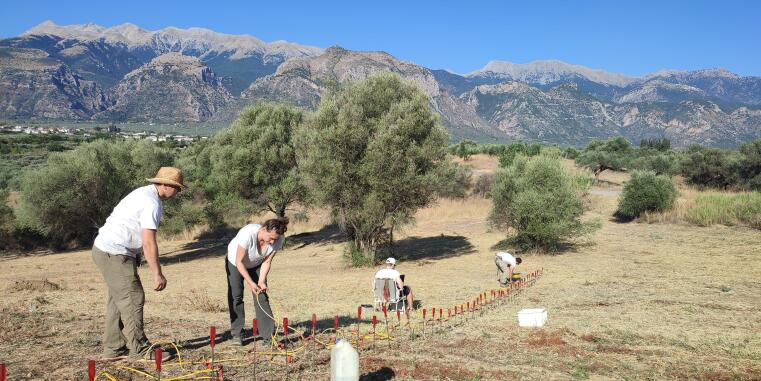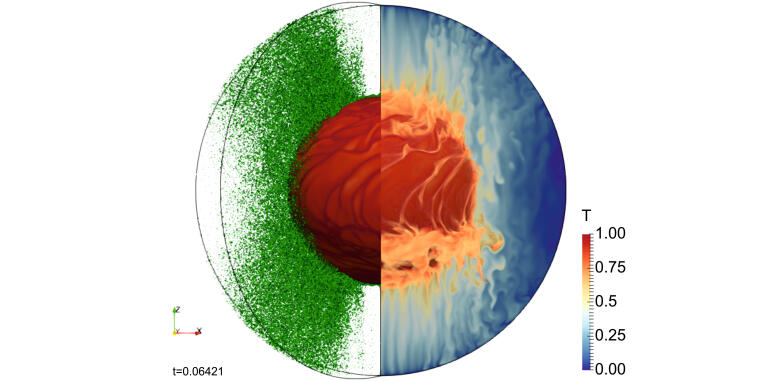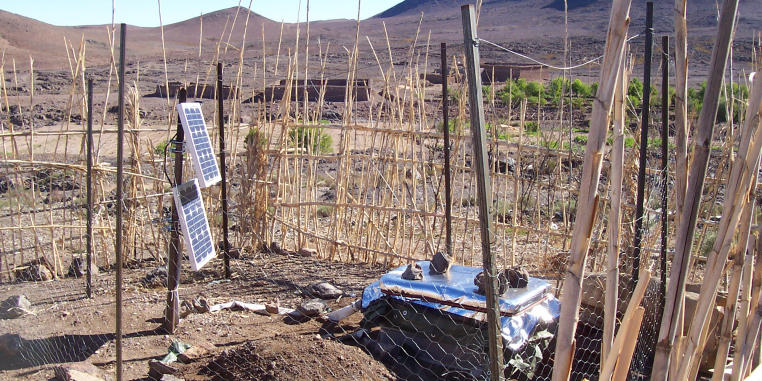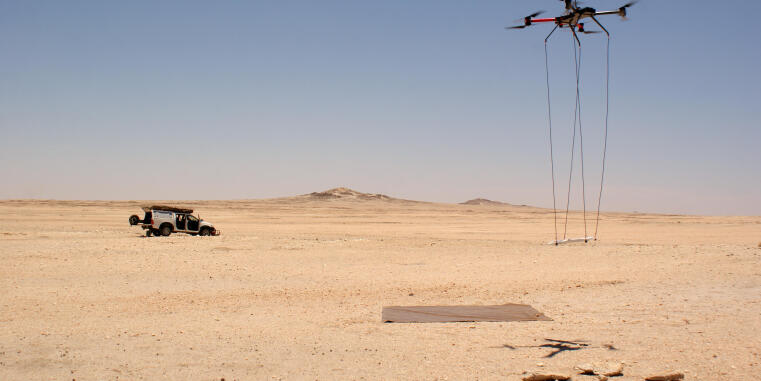Fascination Earth - Geophysics
Geophysics in Münster comprises the main research areas of geodynamics, seismology and applied geophysics.




Natural phenomena such as volcanic eruptions and earthquakes are a constant reminder that we live on a restless planet. Such natural events give us a brief glimpse of the tremendous forces at work inside the earth. The same forces that often destroy human constructions in seconds shaped the surface of the earth over long periods of time, forming mountains and ocean basins and thus creating the framework for the development of life. Research into these processes is the subject of geodynamics, as it is practised in Münster. With the help of complex computer models, it is possible to investigate the processes in the Earth's interior and understand their properties.
The questions we are investigating in Münster are as follows: What is the driving mechanism of plate tectonics, how did the Earth develop from around 4.5 billion years ago until today? Why are there stationary volcanic systems (hot spots) such as the Hawaiian Islands despite plate tectonics? Why is the Earth the only planet among the terrestrial planets that exhibits plate tectonics? How does the earth's magnetic field develop and how do pole reversals occur?
Little is known about the Earth's interior, and seismology is one of the few disciplines that allows us to gather information about structures and processes inside the Earth. But seismology is also of great importance to study the Earth's surface, e.g. when investigating earthquakes, volcanology, icequakes and the associated ice dynamics.
For example, the mineralogy of the Earth's mantle, especially near the Earth's core, has not been determined with certainty, or how the Earth's mantle influences convection in the Earth's core and thus the Earth's magnetic field. The dynamics of ice sheets and ice shelves in a warming climate is another field in which seismology can provide important data.
In Münster, we mainly use array seismology, seismic data analysis and numerical modeling to answer questions about structures and processes in all areas of the Earth, from the inner core to ice shelves. Collaboration with other disciplines such as geodynamics, mineral physics, geosciences and glaciologists is key.
Energy transition, mobility, digitalisation: how can the supply of raw materials as the foundation of a modern and sustainable society be secured in the future? This key question is a central focus of our research.
We are developing geophysical exploration methods for multicopters and helicopters that can be used to map the subsurface very efficiently down to a depth of around 1000 metres. This work contributes to the exploration of mineral deposits and can help to overcome supply bottlenecks in the future.
In addition, the working group is involved in magnetotelluric measurements to explore the lithosphere and the geophysical prospection of archaeological sites.
We offer both a Bachelor's and a Master's degree program in Geophysics.
The Bachelor's program in German covers the basics of geophysics as well as physics, mathematics and geosciences, while the Masters program, which is taught in English, focuses on advanced geophysical subjects. As the Institute of Geophysics is part of the Department of Physics in Münster, the geophysics programs include several courses in physics and mathematics. In addition, many modules are accompanied by practical applications, field courses and laboratory exercises.
Are you still unsure what geophysics actually is and what a geophysics degree program can offer you? Then take a look at our websites, contact the student advisory service for Bachelor's or Master's courses or watch the information video on YouTube to celebrate the 100th anniversary of the German Geophysical Society.